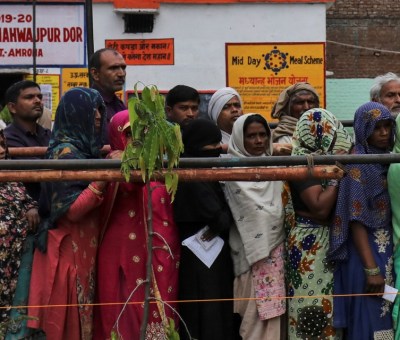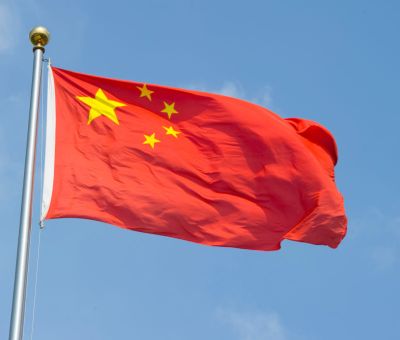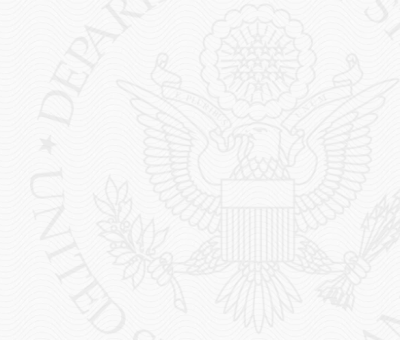Unloved but Indispensable: Political Parties in Eu…
The rise of political parties in their modern form in Europe has historically been associated with the coming of age…
Patrick Quirk, Ph.D., serves as Vice President for Strategy, Innovation, and Impact at IRI. In this role, Dr. Quirk provides the leadership, management, and vision to ensure that IRI is addressing global challenges to democracy by developing innovative and evidence-based programs, tools, and resources. He leads IRI’s organization-wide strategic planning as well as oversees institutional efforts on monitoring, evaluation, research, and learning (MERL).
Dr. Quirk also oversees the Center for Global Impact, the 60-person team of thematic experts, researchers, and global project staff who help IRI monitor and develop innovative approaches to priority technical areas—from countering foreign authoritarian influence and combatting corruption, to strengthening political parties. Previously, he served as IRI’s Senior Director for Strategy, Research, and the Center for Global Impact.
Concurrent to serving at IRI, Dr. Quirk is a Nonresident Senior Fellow in the Atlantic Council’s Scowcroft Center for Strategy and Security and an Adjunct Professor at Georgetown University. From 2019-2021, he was a Nonresident Fellow in the Foreign Policy Program of the Brookings Institution.
Before joining IRI, Dr. Quirk served on the U.S. Secretary of State’s Policy Planning staff in the Department of State as the lead advisor for fragile states, conflict and stabilization, and foreign assistance. Prior to Policy Planning, he served in State’s Bureau of Conflict and Stabilization Operations (CSO) as Senior Advisor for Policy and Strategy. In this capacity, he was the chief political scientist for and a lead author of the 2018 U.S. Stabilization Assistance Review (SAR). During his government service, Dr. Quirk received several Superior and Meritorious Honor Awards.
Prior to joining the Department of State, he was a Research Fellow at the German Marshall Fund as well as designed and implemented conflict prevention and democracy strengthening foreign assistance interventions overseas. His analysis has appeared in The American Interest, American Purpose, Just Security, Foreign Policy, the Financial Times, The National Interest, NPR, and Real Clear Defense, among other outlets.
Dr. Quirk earned a B.A. in History from Bates College and a Ph.D. in Political Science from Johns Hopkins University.
The rise of political parties in their modern form in Europe has historically been associated with the coming of age…
“On Sunday, Mexicans will go to the polls to vote on more than 20,000 elected positions in the largest election…
“With Russia’s 2024 presidential election scheduled to take place this weekend, dictator Vladimir Putin’s path to a fifth term as president is…
“Is the world on fire because of Joe Biden’s foreign policy? Perhaps. The administration has certainly not done its best,…
“In a strong signal of renewed U.S. engagement in West Africa, Secretary of State Antony Blinken recently visited Ivory Coast, Nigeria, and…
“Earlier this month, President Joe Biden signed an executive order curtailing U.S. high-tech investment in China, reflecting a bipartisan consensus…
“The United States has reshaped how it uses military and economic tools to compete with China, Russia, and other adversaries.…
“Democracy was on the agenda at last week’s White House meeting between U.S. president Joe Biden and Brazilian president Luiz…
Washington, DC – Today, the International Republican Institute (IRI) announced that Patrick Quirk, PhD., has been named Vice President for…
“Russia’s illegal and unprovoked war on Ukraine has shattered peace on the European continent and created tectonic shifts in the…

The National Interest
In many ways, pursuing cooperation on fragile states could be low-hanging fruit for beginning to…

The National Interest
The United States does a disservice to the places it seeks to help when it does not customize its approach to context.

American Purpose
Working on the climate problem requires working on the undemocratic regimes that exacerbate it.

Just Security
The Biden administration has committed to organizing a “Summit for Democracy” to…

Brookings
From Central America to Mozambique, the Biden administration faces challenges emanating from fragile states.

Brookings
The Biden administration’s initial foreign policy priorities are coming into focus: combating climate change…


The Hill
The administration has made bolstering democracy abroad a key foreign policy priority.

Brookings
The Biden administration has rhetorically placed strengthening democracy abroad at the center of its foreign policy.

Brookings
Strengthening democracy abroad is a priority for the Biden administration, evident in its commitment to hold a “summit of democracies” to galvanize…

Brookings
The Biden administration will face a multiplicity of challenges on day one.

Brookings
There are indications that President-elect Joe Biden intends to make supporting democracy a key element of his administration’s foreign policy.

American Purpose
Political parties remain part and parcel of democracy, yet they are under stress in the West and farther afield. Two close observers offer a roadmap for supporting them.

Brookings
The Biden administration will take office at a time when democracy is being tested across the world.

Financial Times
Janan Ganesh (“Biden’s foreign policy should steer clear of missionary idealism”, Opinion, November 25) misunderstands how the US and other allies support democracy overseas.

Financial Times
Like David Pilling (“Is the coup making a comeback in Africa?”, Opinion, August 28) we agree that the answer to the question is no.

Brookings
COVID-19 is acting as an accelerant for instability and unrest worldwide.

Real Clear Defense
A strategy is a theory of success. Other definitions of strategy abound but are unsatisfactory for a variety of reasons.

American Interest
As the virus disrupts comfortable illusions and accelerates historical trends, the United States must lead the free world in shaping a more democratic global order.

Brookings
The COVID-19 pandemic is stressing health, political, and economic systems globally.

Brookings
The coronavirus pandemic is poised to exacerbate fragility and violence worldwide.

The Hill
A strategy is a theory of success. Other definitions of strategy abound but are unsatisfactory for a variety of reasons.

Brookings
As regional and international partners focus on countering Boko Haram in West Africa’s Lake Chad Region…

Brookings
The recently concluded Berlin Conference on the continuing civil war in Libya illustrates the drawback of current approaches to stabilization.

World Politics review
The Trump administration is due to soon formally release its findings from a review of U.S. foreign assistance programs…

The Hill
The United States is reshaping how it uses foreign aid in order to compete with China.

US Department of State
In early 2018, Department of State, USAID, and Department of Defense approved the Stabilization Assistance Review (SAR) as a new framework to best leverage our diplomatic…